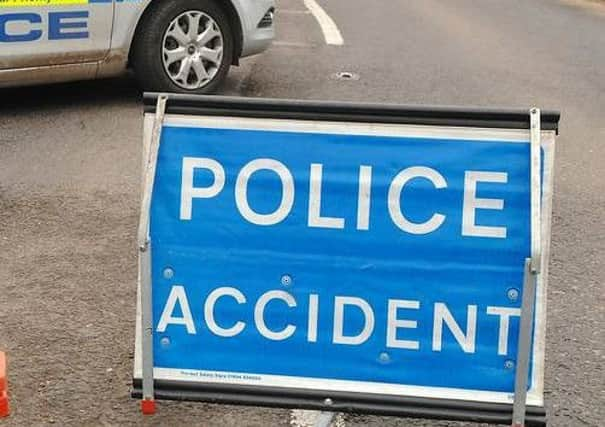Road-crash closures can help prevent other accidents: PSNI


Police also said that having a specialist team of forensic scientists attend accident scenes in Northern Ireland may contribute to roads being closed for slightly longer periods than the rest of the UK.
The explanations of factors relating to road closures following accidents came in response to a freedom of information request from a member of the public.
Advertisement
Hide AdAdvertisement
Hide AdA PSNI officer explained: “Police only have one opportunity to gather evidence at the scene. The length of the closure will depend upon many factors such as the number of vehicles involved, the availability and timeliness of arrival of forensic scientists, photographers, mappers and vehicle examiners.”
When asked how this compares with English police forces, the officer said: “Anecdotally, GB forces hold road closures for a similar length of time as in NI.
“Where they differ is that police officers in GB have been trained to conduct their own scene interpretation as they do not have the access to forensic scientists that PSNI do.
“This is a factor that may speed up their processes in some cases.”
Advertisement
Hide AdAdvertisement
Hide AdPolice were asked why it is necessary to close both sides of a motorway when the accident has been contained on only one side. They revealed that it is because lesser accidents tend to happen when people get “distracted” by a more serious crash scene.
The organisation commented: “Where possible police will keep the opposing lane of traffic flowing, however due to the nature of some collisions and respect for the deceased, this will not always be possible.
“From experience we know that where the lanes are kept open, we find an increased number of rear-end shunts occurring as drivers are distracted by the scene when passing.”
Police said they were aware of economic costs of such closures and diversions and “expedient reopening of the road is regarded as an important factor in our delivery of an effective policing function”.
Advertisement
Hide AdAdvertisement
Hide AdThey added: “However, PSNI do not hold any information that would specifically answer this question (about the cost of road closures and diversions).”
The PSNI’s Collision Investigation Unit operates a 24-hour call-out with officers on duty during both morning and evening peak traffic hours.